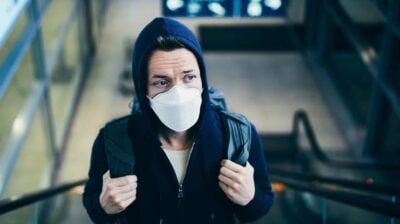Going to a house party during COVID-19
New measures announced by the Government limits the amount of people who can be in one household at a time

For a long time due to the COVID-19 pandemic, there were limits on the number of people who could visit someone’s house, and the number of guests who could attend large events like weddings. As the situation changed, the number of people allowed to gather together went up or down.
The government has now lifted restrictions on the number of people who can visit another house or attend events, so larger gatherings with friends are possible. For many people, this might be the first time they’ve been able to come together with a big group of people in two years.
Although the restrictions have been eased, we are still living with COVID-19, and there are some things to keep in mind. It’s okay if you’re feeling anxious about the lifting of restrictions.
Can I have a party in my house?
There are currently no restrictions on the number of people who can visit your house. There are also currently no restrictions on the number of people who can attend indoor or outdoor events. This means if you were to hold a house party, it would not break any COVID-19 guidelines.
Here are some things to keep in mind if you’re planning on throwing or going to a house party.
Take an antigen test before the party
Before you meet up with other people, especially large groups, it’s a good idea to take a rapid antigen test beforehand. This means if you have COVID-19, but you haven’t had any symptoms, you can avoid spreading it to others.
Take the antigen test the day you plan to see others. Ideally, take the antigen test an hour before the event. If your antigen test result is positive, you will need to self-isolate straight away, register your positive test result and share your close contacts with the HSE. Find out more about getting tested for COVID-19.
Cancel if you’re feeling unwell
If you have any symptoms of COVID-19 or if you receive a positive antigen test result, it’s important to cancel your party or stay at home if you were planning on visiting someone else. The virus is still with us, and people who are at higher risk of serious illness are still vulnerable. This means we need to do what we can to prevent the spread of COVID-19.
If you are experiencing symptoms, you will need to self-isolate straight away and take a rapid antigen test.
Remember public health advice
If you want to reduce the risk of COVID-19 spreading at your house party, there are a few things you can do. Good ventilation (air flow) in a room is important for reducing the spread, so keeping some windows or doors open could be a good idea. Try to remember to wash your hands regularly, and avoid getting too close to others. However, if there are a lot of people in a small space, it can be more difficult to prevent the spread of COVID-19.
Avoid close contact with vulnerable people afterwards
It’s important to remember that COVID-19 is still with us, and there are people who can get very sick if they catch the virus.
After the party, it is a good idea to avoid close contact with anyone who is at serious risk of illness from COVID-19. If you must be around someone who is more vulnerable to COVID-19, then it is recommended you both wear medical or respirator (FFP2) masks, as these are much more effective at preventing the spread of the virus than cloth masks.
Find out more about the different types of face masks.
Get vaccinated for the best protection
The best way to protect yourself and others from COVID-19 is to get vaccinated. It is never too late to get your first dose. If you have already been vaccinated and you are due your booster shot, getting this done will help to boost your immunity.
Vaccines are proven to be safe and effective. Find out more about getting vaccinated against COVID-19.
Why is having a house party a COVID-19 risk?
COVID-19 is a highly transmissible infectious disease, and the virus wants to spread. But it needs people to come into contact to do so. Coming together in groups, in enclosed spaces with a lack of ventilation, where there is close contact between people and long durations of time spent together creates an environment where it is easier for the virus to spread.
Laughing, shouting or singing can release droplets that may contain the virus and infect other people nearby. These are all risk factors to be aware of. To reduce your risk, limit your time in other people’s homes. Keep your social contacts as low as possible. Stick to outdoor meet-ups if possible.
Feeling overwhelmed and want to talk to someone?
- Get anonymous support 24/7 with our text message support service
- Connect with a trained volunteer who will listen to you, and help you to move forward feeling better
- Whatsapp us now or free-text SPUNOUT to 50808 to begin.
- Find out more about our text message support service
If you are a customer of the 48 or An Post network or cannot get through using the ‘50808’ short code please text HELLO to 086 1800 280 (standard message rates may apply). Some smaller networks do not support short codes like ‘50808’.





